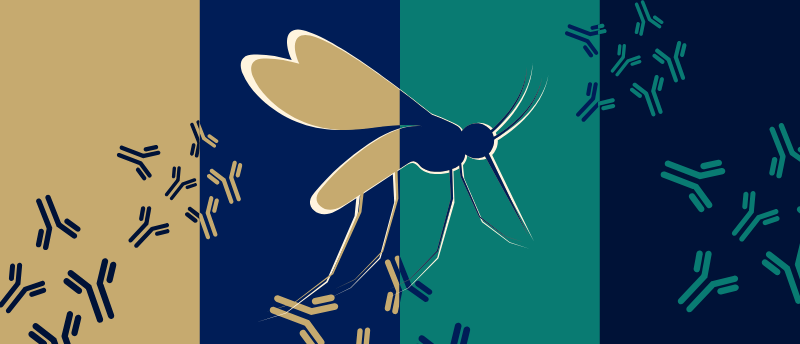Novel class of anti-malaria antibodies identified

Novel anti-malaria antibodies have been identified, potentially contributing to the next generation of malaria prevention.
Researchers at the National Institutes of Health (MD, USA) have identified a novel class of antibodies that bind to previously untargeted epitopes on the malaria parasite. These antibodies could lead to new prevention methods, offering other potential routes for fighting malaria and reducing its burden.
Malaria is a life-threatening disease spread by the bites of parasite-infected mosquitos. According to the World Health Organization, in 2023 there were an estimated 263 million cases of malaria and 597,000 deaths. There are five species of Plasmodium parasite that cause malaria; however, Plasmodium falciparum (Pf) is the most common in African countries where the malaria burden is highest and children make up the majority of malaria deaths. The parasite spreads from mosquito to human when it’s in its sporozoite life stage, making this the life stage that interventions should target.
Current malaria interventions – including vaccines and anti-malaria monoclonal antibodies – are targeted at the central repeat region within the Pf circumsporozoite protein (PfCSP), the major sporozoite coat protein. Although this is an essential protein to the sporozoite coat, other antigens on the coat are worth exploring.

Flying under the radar: mosquito-borne virus uses nonoptimal codons to infect host
Researchers have found that dengue virus infects mosquito and human hosts using nonoptimal synonymous codons, potentially to avoid triggering an antiviral response.
That’s why the current research team set out to investigate potential unknown targets on the Pf sporozoite surface, which might one day complement existing interventions that target the PfCSP central repeat region. They developed an antigen-agnostic pipeline to assess human B cells’ production of antibodies that bind to these sporozoites. They gradually made their pipeline more specific, excluding antibodies targeting conventional PfCSP epitopes to increase the likelihood of finding novel epitope targets. The antibodies that bound to the novel targets were then used to identify the unknown epitopes, followed by further investigation of how targeting these epitopes affected the malaria parasite both in vitro and in vivo.
The team tested the antibodies in response to whole sporozoites in mouse models of malaria, finding that the monoclonal antibody called MAD21-101 was the most potent and protected against Pf infection. MAD21-101 binds an epitope – called pGlu-CSP – outside the central repeat region on PfCSP. Interestingly, mass spectrometry revealed that this epitope is widely accessible on the sporozoite surface but only after the sporozoite has undergone a certain developmental event.
Because current interventions don’t target pGlu-CSP, antibodies that target it shouldn’t interfere with existing vaccines if they are co-administered; therefore, this new class of antibodies can inform future strategies for preventing malaria. However, more research is needed to investigate the activity and efficacy of the newly identified antibody class and pGlu-CSP.